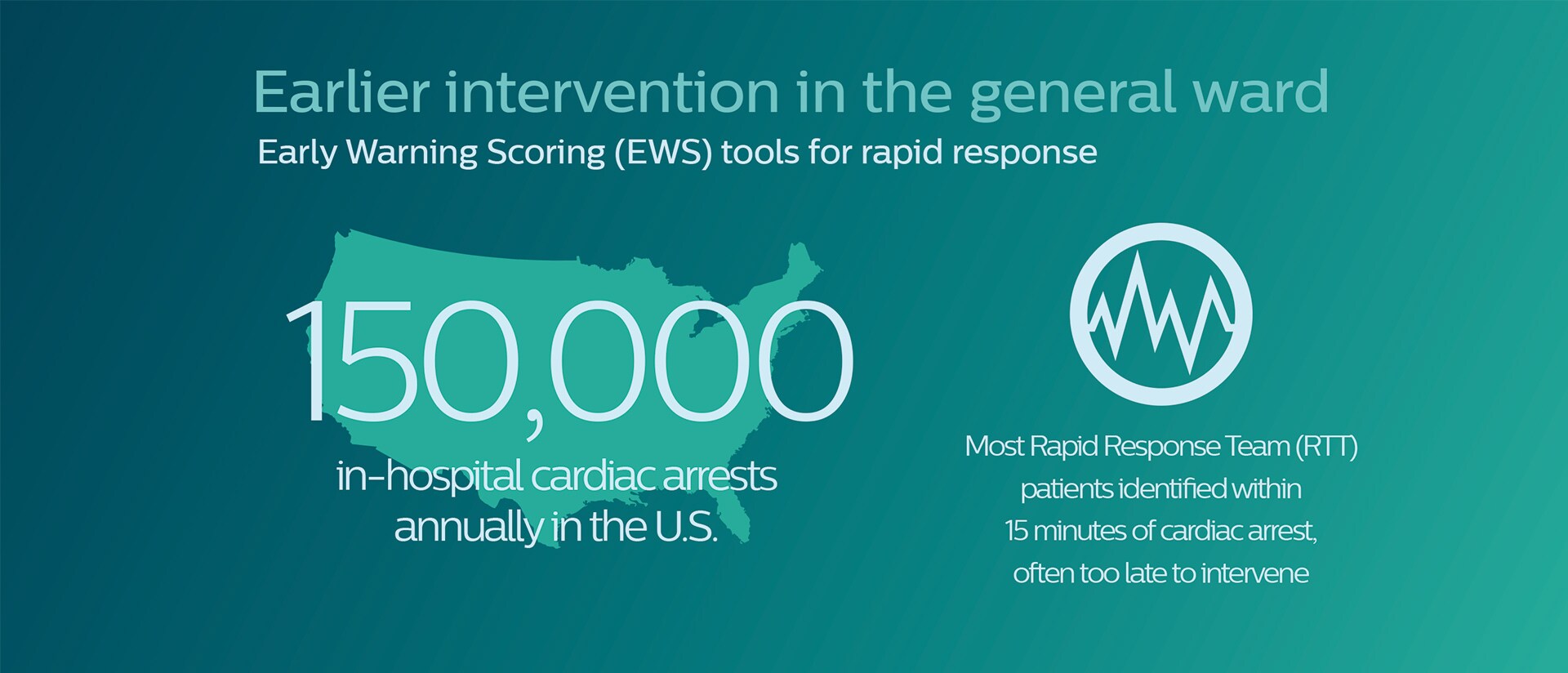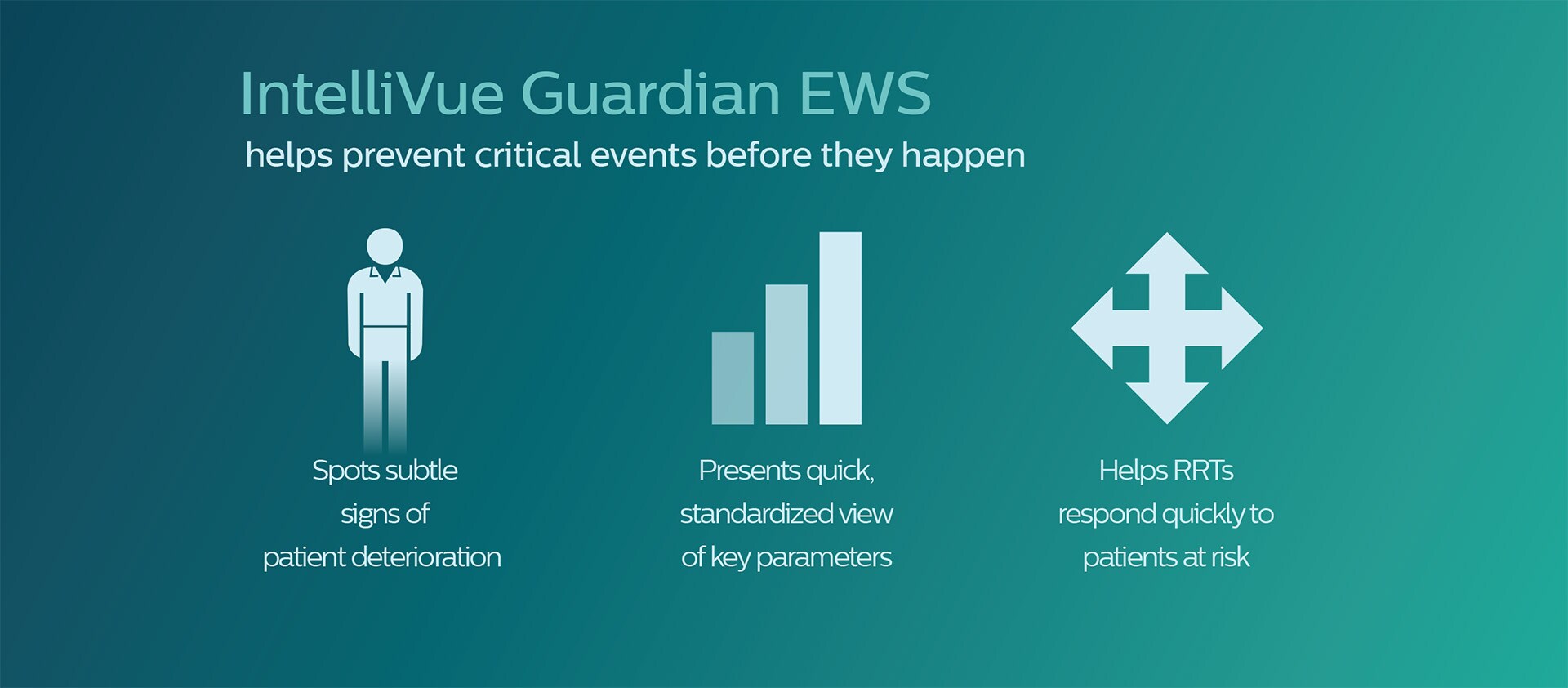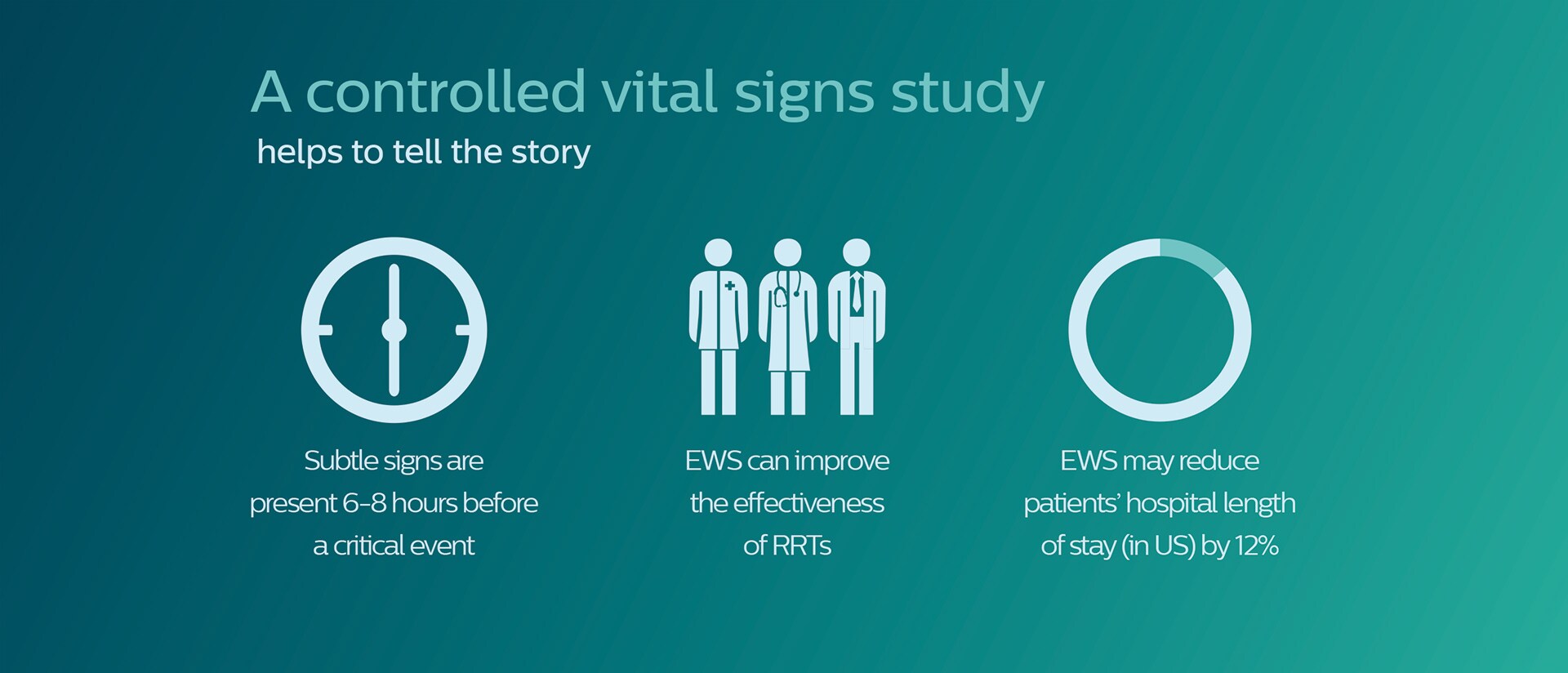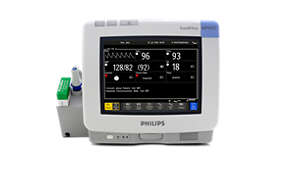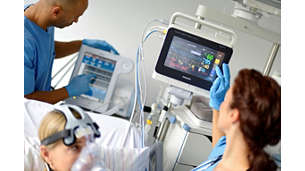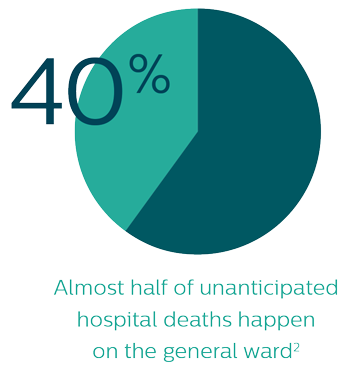
Can your general ward react quickly to an emergency?
The signs of a patient’s clinical instability typically occur six to eight hours before an adverse event. Early intervention puts time on your side. With IntelliVue Guardian Solution, Early Warning Scoring (EWS) can help you spot patient deterioration quickly and send proper notification to Rapid Response Teams.¹
Large patient volumes and limited staffing can make it hard for care providers to know which patients to watch more closely.
